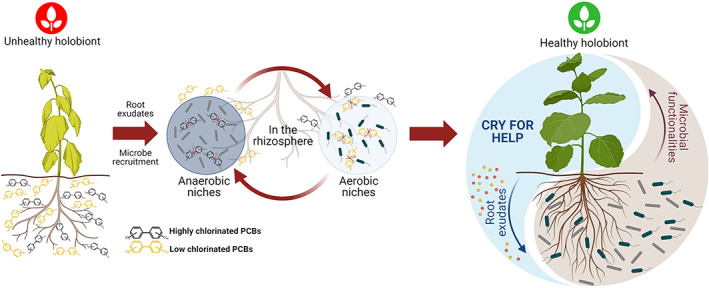Fig 2.

The complex network interaction between the plant ‘cry‐for‐help’ strategy and the ecological services provided by the degrader microbiome sustain the holobiont fitness in polychlorinated biphenyls (PCBs) contaminated soils. The PCB‐induced phytotoxic effects negatively impact the growth and health of plants growing in polluted soils, which modify their root chemistry in a ‘cry‐for‐help’ strategy to recruit, feed and sustain PCB‐degrading microbes in the rhizosphere. Plant primary and secondary metabolites are valuable candidates to support the microbial aerobic co‐metabolism and anaerobic dechlorination of PCBs. Different arrays of microbial populations are involved in PCBs degradation, acting in a metabolic network and in different aerobic and anaerobic micro‐niches that establish in the rhizosphere also as consequence of microbial growth and PCB metabolism, favouring further clean‐up of the pollutant. The ‘cry‐for‐help’ approach and the microbial functionalities encoded by the recruited microbiome contribute to foster this healthy system, restoring the holobiont fitness.
